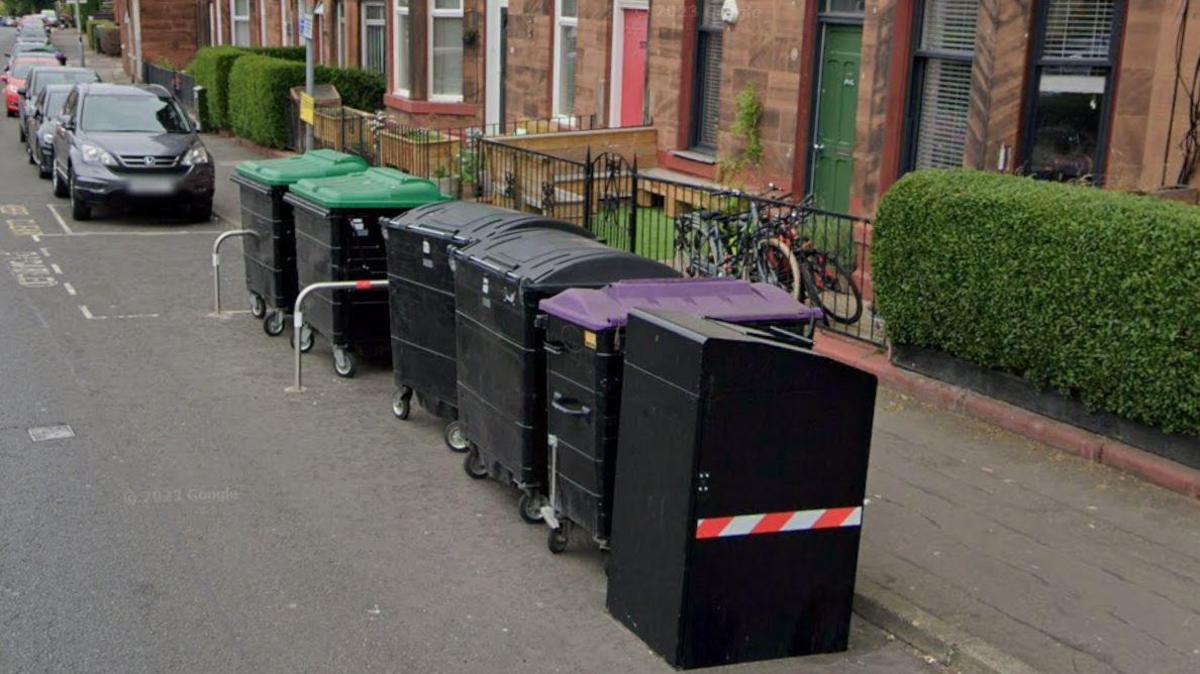Bin sensors could bring end to regular collections

Communal bins across Edinburgh will use sensors to help tell when they are full and ready for collection
- Published
Edinburgh's council is planning to scrap regular collections for glass recycling by using sensors to help them tell when the bins are full.
The initiative, which is part of the council's plan to become a 'smart city', also aims to reduce noise for residents who live near the communal bin areas.
More than 3,000 bins across the capital are to move to 'dynamic' collections which means the bins are only emptied when they are almost full.
The council plans to move to a fully dynamic collection service in the new year once installation of the sensors is complete.
The council said the new approach aims to reduce noise for local residents and make waste collection more efficient.
Data from the sensors will also identify low-use bins, which could potentially be removed from the streets.
A report by the council's transport and environment committee said there are about 3,400 communal glass recycling bins located around the city, with 2,700 already fitted with the sensors.
It said there were about 700 sensors due for installation before they could move to a fully dynamic collection service.
The report said: "This means there will be no fixed collection schedule for on-street bins as they will be collected on a demand-basis linked directly to sensor data."
The council also plans to give residents the opportunity to suggest alternative sites for glass collections to provide more centralised hubs.
The council report said it would listen to feedback once it has been running for several months next year.
The report in to the plan said that noise from glass recycling was 'highly variable' and it was difficult to find a solution which reduces the level of sound.
It said: "There is a limit to what the structure of the bottle bank can do to dampen noise level."
Additional reporting by Marie Sharp, Local Democracy Reporting Service, external